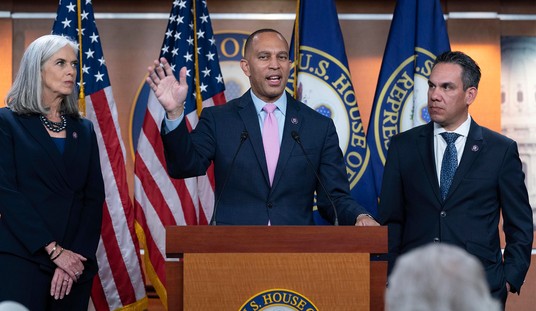
The story of tonight’s New Hampshire debate will probably be about Marco Rubio – but we don’t know yet what that story will be, because the post-debate spin may be more important than what actually happened.
Rubio had some very good and bad moments tonight. Unfortunately for him, the bad ones were early, they were ugly and they were preventable. Chris Christie attacked him with a line Christie has been repeating all week, accusing Rubio of using too many canned answers, and Rubio responded by repeating himself, and for good measure let Christie get away with denying the undeniably true fact that New Jersey’s credit rating has been downgraded nine times on his watch. Liberals on Twitter were swarming immediately to try to make this a “this is the end of Rubio” moment. James Fallows alone Tweeted three different variations on this:
Marco Rubio is living through Dan Quayle’s debate experience vs Lloyd Bentsen in 1988.
— James Fallows (@JamesFallows) February 7, 2016
Most self-destructive debate performance since Quayle ’88 and J.B. Stockdale ’92: Rubio.
— James Fallows (@JamesFallows) February 7, 2016
In fairness, I should have added Perry ’12 to the list of Quayle ’88, Stockdale ’92, and Rubio ’16 for debate disasters
— James Fallows (@JamesFallows) February 7, 2016
Rubio had two separate exchanges with Christie, who is very good at this, and was never able to figure him out. And yet the rest of the night included some really outstanding moments from Rubio. He hit a home run with an impassioned late answer on abortion that served the double purpose of making Jeb Bush look unprincipled (for describing his own abortion position as a “political sweet spot”) and Christie sound like a pro-choicer when he slipped into pro-abortion terminology about “when to terminate a pregnancy”. He had some very strong exchanges on foreign policy issues, with the exception of a cringe-inducing question about exposing women to the military draft, which Rubio, Jeb and Christie all inexplicably agreed to and Ben Carson dodged. And Rubio snuck in a response to earlier questions about his accomplishments in an answer about the VA that discussed his work on a VA accountability bill.
Which will be more important? Pundit spin is focusing heavily on the former, as just about every other camp plus the Democrats has a strong interest in taking Rubio down. Google search trends during the debate seem to show a lot more interest in Rubio’s later, stronger moments.
And here's the final trends. 4/5 biggest spikes were from Rubio, none had to do with the Christie exchanges. pic.twitter.com/t2JAPvXv5A
— D. Hawkins (@HawkinsUSA) February 7, 2016
At the opposite pole from Rubio stood Ted Cruz, who seemed determined to stick to a game plan of not making tonight about himself. Cruz avoided attacking any of his opponents, both content to let them fight and looking to burnish his own often-shaky likeability, which he also helped with a moving discussion of drug problems in his own family (albeit one that ended on a discordant note as he veered to immigration at the end). Cruz was uncharacteristically hesitant in some answers, such as on interrogation, that came off shaky onstage but will read well on the transcript. That may be a bit of fatigue showing, just as we saw in Rubio’s canned responses to Christie and as we saw in Donald Trump, who sounded very tired by the night’s end. But while Cruz has invested in a ground game in New Hampshire, his status as winner of Iowa and the poor match he makes with the New Hampshire electorate means his showing here is all gravy, so he could afford to play it safe.
Jeb, Kasich and Christie, with their backs against the wall and facing extinction after Tuesday, all brought their “A” games, such as they are, and the New Hampshire voters will have their fate in their hands. But who won tonight? Frankly, we haven’t started to find out.













Join the conversation as a VIP Member